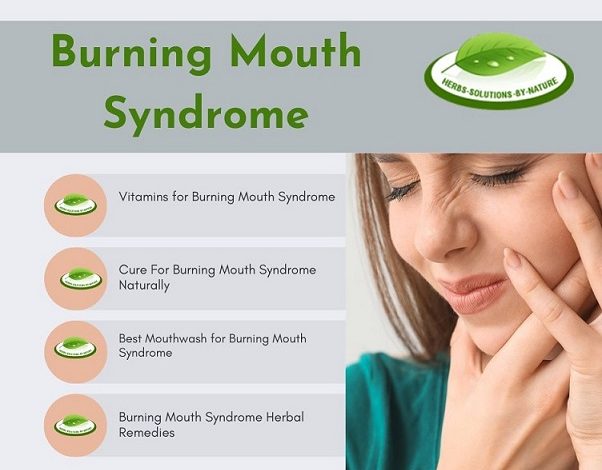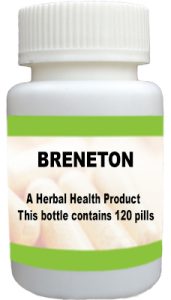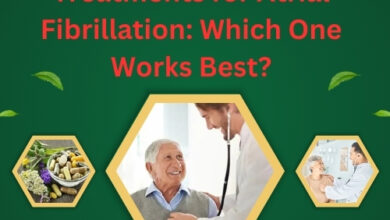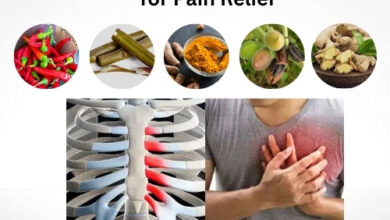Natural Ways to Relieve Burning Mouth Syndrome

What Is Burning Mouth Syndrome
Burning Mouth Syndrome (BMS) is a chronic, complex condition characterized by a burning or tingling sensation in the mouth, often affecting the tongue, lips, palate, or entire oral cavity. The discomfort can range from mild to severe and may be continuous or intermittent.
Some common symptoms of Burning Mouth Syndrome include:
- Burning or tingling sensation: Individuals with BMS may experience a burning or tingling feeling in the mouth, which can be persistent.
- Dry mouth: Many people with BMS also report a dry or parched sensation in their mouth.
- Altered taste: BMS can lead to changes in taste perception, causing a metallic or bitter taste.
- Mouth discomfort worsens throughout the day: Some individuals may notice that their symptoms intensify as the day progresses.
The exact cause of Burning Mouth Syndrome is often challenging to identify, and it can result from a combination of factors. Possible contributing factors include hormonal changes, nutritional deficiencies (such as B vitamins), medications, oral habits, psychological factors (such as stress or anxiety), and nerve damage.
Diagnosis of BMS involves a thorough examination by a healthcare professional, including a detailed medical history, oral examination, and, in some cases, blood tests or other diagnostic procedures. Treatment may vary depending on the underlying cause, and a multidisciplinary approach may be necessary. Symptomatic relief can be achieved through various means, including medications, oral rinses, and lifestyle modifications.
It’s important for individuals experiencing symptoms suggestive of Burning Mouth Syndrome to seek professional medical advice for an accurate diagnosis and appropriate management. A healthcare provider, such as a dentist or oral medicine specialist, can help determine the cause of the symptoms and develop a tailored treatment plan.
Burning Mouth Syndrome Treatments
It can be a challenging condition to treat, and the effectiveness of treatments can vary from person to person. It’s important to consult with a healthcare professional to determine the most appropriate treatment for your specific case. Here are some common approaches that may be considered:
- Identify and Treat Underlying Conditions:
- BMS may be associated with other medical conditions such as diabetes, nutritional deficiencies, or hormonal imbalances. Identifying and treating these underlying issues can sometimes alleviate the symptoms.
- Medications:
- Antidepressants: Tricyclic antidepressants, such as amitriptyline, or selective serotonin reuptake inhibitors (SSRIs) may be prescribed to help manage pain and improve mood.
- Anticonvulsants: Medications like gabapentin or pregabalin, commonly used to treat nerve pain, may be considered.
- Clonazepam: This anti-anxiety medication may be prescribed in some cases.
- Topical Therapies:
- Topical oral medications containing capsaicin, a substance found in chili peppers, may be used to desensitize the nerves in the mouth. However, this treatment should be approached with caution as it may cause irritation.
- Saliva Substitutes and Oral Hygiene:
- Maintaining good oral hygiene and using saliva substitutes can help alleviate symptoms, especially if dry mouth is contributing to the discomfort.
- Cognitive Behavioral Therapy (CBT):
- CBT can be helpful in managing the psychological aspects of BMS, particularly if stress or anxiety is contributing to the symptoms.
- Dietary Changes:
- Avoiding certain foods and substances that may trigger or worsen symptoms, such as spicy foods, acidic foods, caffeine, and alcohol.
- Nutritional Supplements:
- In some cases, nutritional deficiencies (e.g., vitamin B, iron, zinc) may contribute to BMS. Supplementation may be recommended after proper assessment.
- Lifestyle Modifications:
- Stress management techniques, such as relaxation exercises or yoga, may be beneficial in some cases.
It’s crucial to work closely with your healthcare provider to determine the most appropriate treatment plan for your specific situation. Additionally, since the understanding and management of medical conditions may evolve, it’s advisable to consult with a healthcare professional for the latest information and guidance.
Vitamins for Burning Mouth Syndrome
While there is no specific vitamin or supplement that is universally proven to cure or alleviate Burning Mouth Syndrome, some vitamins and minerals may play a role in supporting overall oral health and potentially reducing symptoms. It’s essential to consult with a healthcare professional before starting any new supplement regimen. Here are some vitamins and minerals that may be considered:
- B Vitamins: B vitamins, including B1 (thiamine), B2 (riboflavin), B6 (pyridoxine), B9 (folate), and B12 (cobalamin), are important for nerve function and overall oral health. Deficiencies in these vitamins may contribute to symptoms similar to BMS.
- Iron: Iron deficiency has been linked to BMS. Ensuring an adequate intake of iron-rich foods or considering iron supplements under the guidance of a healthcare professional may be beneficial.
- Zinc: Zinc is essential for wound healing and immune function. It may play a role in oral health, and some studies suggest that zinc supplementation could be beneficial for certain individuals with Burning Mouth Syndrome.
- Vitamin D: Vitamin D is crucial for bone health, including oral health. Adequate vitamin D levels may support overall mouth health.
- Omega-3 Fatty Acids: Omega-3 fatty acids have anti-inflammatory properties and may contribute to overall oral health. Foods’s rich in omega-3s include fatty fish, flaxseeds, and walnuts.
- Vitamin C: Vitamin C is important for collagen formation and wound healing. It is also an antioxidant that supports the immune system. While there is limited evidence specifically linking vitamin C to Burning Mouth Syndrome, maintaining overall oral health is essential.
It’s important to note that individual responses to supplements can vary, and addressing nutritional deficiencies should be done under the guidance of a healthcare professional. They can perform tests to identify any specific deficiencies and recommend an appropriate treatment plan tailored to your needs. Additionally, treating Burning Mouth Syndrome often requires a comprehensive approach that may involve addressing underlying causes, managing symptoms, and seeking support from healthcare professionals such as dentists, oral medicine specialists, and neurologists.
Cure For Burning Mouth Syndrome Naturally
While there is no specific Cure For Burning Mouth Syndrome, there are some Natural Remedies for Burning Mouth Syndrome and lifestyle changes that may help alleviate symptoms. It’s important to note that you should consult with a healthcare professional to determine the underlying cause of your symptoms and to develop a personalized treatment plan. Here are some natural approaches that may provide relief:
- Stay Hydrated: Drink plenty of water throughout the day to keep your mouth moist.
- Avoid Irritants: Steer clear of spicy, hot, acidic, or salty foods that may exacerbate symptoms. Also, avoid tobacco and alcohol, as they can contribute to mouth dryness.
- Maintain Good Oral Hygiene: Brush your teeth with a soft-bristled toothbrush and use a mild toothpaste. Consider using an alcohol-free mouthwash.
- Dietary Changes: Increase your intake of B vitamins, especially B12, and iron. These nutrients are important for oral health. Foods rich in B vitamins include leafy green vegetables, whole grains, and lean meats.
- Omega-3 Fatty Acids: Foods high in omega-3 fatty acids, such as fatty fish (salmon, mackerel), flaxseeds, and walnuts, may have anti-inflammatory properties that could be beneficial.
- Aloe Vera Gel: Some people find relief by swishing a small amount of aloe vera gel in their mouths. Make sure the gel is pure and does not contain added sugars or other irritants.
- Chewing Gum or Lozenges: Sugar-free gum or lozenges can stimulate saliva production, helping to alleviate dry mouth symptoms.
- Stress Management: Practice stress-reducing techniques such as meditation, deep breathing exercises, or yoga. Stress can exacerbate BMS symptoms.
- Acupuncture: Some individuals report improvement in BMS symptoms with acupuncture. Consult with a qualified practitioner to explore this option.
- Dietary Supplements: Consult with a healthcare professional to determine if you have any nutrient deficiencies and whether supplements such as B vitamins, iron, or zinc may be beneficial.
Remember, these suggestions are general and may not work for everyone. It’s crucial to work with a healthcare professional to determine the most appropriate course of action for your specific situation. If you are experiencing symptoms of Burning Mouth Syndrome, seek guidance from a dentist or a healthcare provider to identify the underlying cause and develop a comprehensive treatment plan.
Burning Mouth Syndrome Home Remedies
However, some people find relief from the symptoms through the following home remedies:
- Maintain Good Oral Hygiene:
- Brush your teeth regularly with a mild, fluoride toothpaste.
- Use a soft toothbrush to avoid irritating the oral tissues.
- Stay Hydrated:
- Drink plenty of water throughout the day to keep your mouth moist.
- Avoid Irritants:
- Stay away from spicy, hot, acidic, or salty foods that may exacerbate symptoms.
- Limit or avoid alcohol and tobacco, as they can contribute to mouth irritation.
- Choose Mild Toothpaste and Mouthwash:
- Opt for mild, non-irritating toothpaste and mouthwash without alcohol or strong flavors.
- Sugar-Free Gum or Lozenges:
- Chewing sugar-free gum or sucking on sugar-free lozenges can stimulate saliva production and help relieve dry mouth.
- Cold Compress:
- Applying a cold compress to the affected area can provide temporary relief from the burning sensation.
- Yogurt and Probiotics:
- Include yogurt and other probiotics in your diet, as they may help balance oral bacteria.
- Baking Soda Rinse:
- Rinse your mouth with a solution of water and baking soda to neutralize acids and soothe the mouth. Mix 1 teaspoon of baking soda in a glass of water.
- Herbal Rinses:
- Rinse your mouth with herbal solutions, such as chamomile tea or aloe vera juice, which may have soothing properties.
- Stress Management:
- Practice stress-reduction techniques, such as meditation, yoga, or deep breathing exercises, as stress can contribute to BMS symptoms.
- Vitamin and Mineral Supplements:
- Ensure you’re getting adequate levels of vitamins and minerals, such as B vitamins, iron, and zinc, which are essential for oral health.
It’s crucial to note that while these home remedies may provide relief for some individuals, they might not work for everyone. If you’re experiencing persistent symptoms of Burning Mouth Syndrome, it’s important to consult with a healthcare professional for a thorough evaluation and appropriate treatment plan.
Burning Mouth Syndrome Herbal Remedies
However, some people explore herbal remedies as complementary approaches to alleviate symptoms. Keep in mind that the effectiveness of herbal remedies may vary, and it’s crucial to discuss any alternative treatments with your healthcare provider before trying them. Here are some herbal remedies that some people find helpful for managing Burning Mouth Syndrome:
- Aloe Vera Gel:
- Aloe vera has anti-inflammatory properties and may help soothe irritated tissues. You can apply pure aloe vera gel to the affected areas in your mouth.
- Chamomile Tea:
- Chamomile has anti-inflammatory and calming properties. Rinse your mouth with chamomile tea or apply a chamomile tea bag directly to the affected area.
- Licorice Root:
- Licorice root has been traditionally used for its anti-inflammatory properties. You can try chewing on a licorice root stick or using a licorice mouthwash. However, be cautious with licorice if you have high blood pressure or other health concerns, as it may not be suitable for everyone.
- Coconut Oil:
- Coconut oil has antimicrobial and anti-inflammatory properties. Swishing with coconut oil (oil pulling) for a few minutes each day might help reduce discomfort.
- Peppermint Oil:
- Peppermint oil has a cooling effect and may provide temporary relief. You can try adding a drop of food-grade peppermint oil to a glass of water for a mouth rinse. Be cautious with the concentration, as peppermint oil can be strong.
- B Vitamins:
- Some people find that B vitamin supplements, particularly B12, can be helpful. Consult with your healthcare provider before taking any supplements to ensure they are safe for you.
Remember, these remedies might not work for everyone, and their effectiveness is not universally supported by scientific evidence. It’s crucial to work closely with your healthcare provider to identify the cause of your symptoms and develop an appropriate treatment plan. Additionally, some Herbal Treatment for Burning Mouth Syndrome may interact with medications or have side effects, so it’s essential to consult with a healthcare professional before trying them.
Best Mouthwash for Burning Mouth Syndrome
Here are some considerations when choosing a mouthwash for individuals with Burning Mouth Syndrome:
- Alcohol-Free: Choose a mouthwash that is alcohol-free to prevent drying out the oral tissues.
- Mild Ingredients: Look for a mouthwash with mild and non-irritating ingredients. Avoid products with harsh chemicals or strong flavors that may worsen symptoms.
- Fluoride: Some mouthwashes contain fluoride, which can help protect teeth from decay. However, be aware that some individuals with BMS may be sensitive to fluoride, so it’s essential to monitor how your body reacts.
- SLS-Free: Sodium lauryl sulfate (SLS) is a foaming agent found in some oral care products. Some individuals find that SLS can contribute to mouth irritation, so choosing an SLS-free option may be beneficial.
- Consult with a Healthcare Professional: Before using any product, it’s crucial to consult with a healthcare professional, such as a dentist or oral medicine specialist. They can provide personalized recommendations based on your specific condition and needs.
It’s important to note that there is no one-size-fits-all solution for BMS, and what works for one person may not work for another. Therefore, working closely with a healthcare professional is key to managing and finding relief for Burning Mouth Syndrome.
Best Toothpaste for Burning Mouth Syndrome
That said, some general recommendations for choosing a toothpaste when dealing with burning mouth syndrome or other oral sensitivities include:
- SLS-Free Toothpaste: Sodium lauryl sulfate (SLS) is a common ingredient in many toothpaste brands and has been associated with oral irritation in some individuals. Choosing a toothpaste without SLS might be helpful.
- Fluoride Toothpaste: Fluoride is important for maintaining oral health and preventing tooth decay. Ensure that your toothpaste contains fluoride, unless otherwise advised by your healthcare professional.
- Mild or Natural Toothpaste: Consider using toothpaste with mild or natural ingredients. Some people find relief with toothpaste that doesn’t contain strong flavors, artificial colors, or other potential irritants.
- Preservative-Free: Some people may be sensitive to certain preservatives. Choosing a toothpaste without common preservatives like parabens may be worth considering.
- Alcohol-Free: Toothpaste without alcohol may be less irritating for some individuals.
It’s crucial to discuss your symptoms with a dentist or healthcare provider who can provide personalized advice based on your specific situation. They may also recommend specific dental products or treatments tailored to your needs. Additionally, they can help rule out other potential causes for your symptoms and guide you in managing burning mouth syndrome effectively.
Burning Mouth Syndrome Treatment Baking Soda
Burning Mouth Syndrome (BMS) is a condition characterized by a burning or tingling sensation in the mouth, often without any apparent cause. While there is no specific cure for BMS, there are various treatments that individuals have tried to alleviate symptoms. It’s essential to consult with a healthcare professional for a proper diagnosis and personalized treatment plan. That being said, some people have reported relief from burning mouth symptoms by using baking soda in different ways:
- Baking Soda Rinse:
- Mix 1 teaspoon of baking soda in a glass of warm water.
- Use this solution as a mouth rinse, swishing it around your mouth for about 30 seconds before spitting it out.
- Some people find relief from the burning sensation using this rinse.
- Baking Soda Toothpaste:
- Some individuals use toothpaste containing baking soda to brush their teeth. This may help maintain oral hygiene and potentially provide some relief.
- Baking Soda Paste:
- Mix a small amount of baking soda with water to form a paste.
- Apply the paste directly to the tongue or affected areas for a short duration and then rinse thoroughly.
It’s important to note that while some people may find temporary relief with these methods, there isn’t strong scientific evidence supporting the effectiveness of baking soda for treating Burning Mouth Syndrome. Additionally, using baking soda excessively or inappropriately can lead to side effects, such as changes in taste or irritation.
It’s crucial to consult with a healthcare professional, such as a dentist or oral medicine specialist, to determine the underlying cause of your symptoms and to discuss appropriate treatment options. They may recommend lifestyle changes, medications, or other interventions based on your specific situation.
Burning Mouth Syndrome Cognitive Therapy
Burning Mouth Syndrome (BMS) is a condition characterized by a burning or tingling sensation in the mouth without an apparent cause. While there isn’t a specific cognitive therapy designed exclusively for BMS, cognitive-behavioral therapy (CBT) can be a useful approach in managing the psychological aspects of the condition.
CBT is a therapeutic approach that focuses on identifying and changing negative thought patterns and behaviors. It is commonly used to address various health conditions, including chronic pain and disorders with a strong psychological component. Here are some ways in which cognitive therapy, particularly CBT, may be beneficial for individuals with Burning Mouth Syndrome:
- Addressing Catastrophic Thinking: BMS can be frustrating and distressing, leading to catastrophic thinking where individuals may believe the worst about their symptoms. CBT can help identify and challenge these negative thought patterns, promoting more balanced and realistic thinking.
- Stress Management: Stress is often linked to the exacerbation of BMS symptoms. CBT can provide individuals with stress management techniques, such as relaxation exercises, mindfulness, and cognitive restructuring, to help reduce stress levels.
- Pain Coping Strategies: Chronic pain conditions, including BMS, can be emotionally challenging. Cognitive therapy can teach individuals effective pain coping strategies, helping them manage the impact of pain on their daily lives.
- Behavioral Activation: BMS may lead to avoidance behaviors, such as avoiding certain foods or activities due to fear of exacerbating symptoms. CBT focuses on behavioral activation, encouraging individuals to gradually resume normal activities while developing adaptive coping mechanisms.
- Identifying Triggers: Cognitive therapy can assist in identifying potential triggers for BMS symptoms, whether they are related to stress, certain foods, or other factors. Once identified, strategies can be developed to manage or avoid these triggers.
- Education and Psychoeducation: Understanding the psychological aspects of BMS and learning about the mind-body connection can empower individuals to better manage their symptoms. Psychoeducation is an essential component of cognitive therapy.
It’s crucial to note that while cognitive therapy may provide relief for some individuals with BMS, it is not a cure for the physical symptoms. A comprehensive approach that includes collaboration with healthcare professionals, such as dentists, oral medicine specialists, and other relevant specialists, is recommended for managing Burning Mouth Syndrome. If you or someone you know is experiencing symptoms of BMS, it’s essential to seek professional medical advice for a proper diagnosis and tailored treatment plan.





